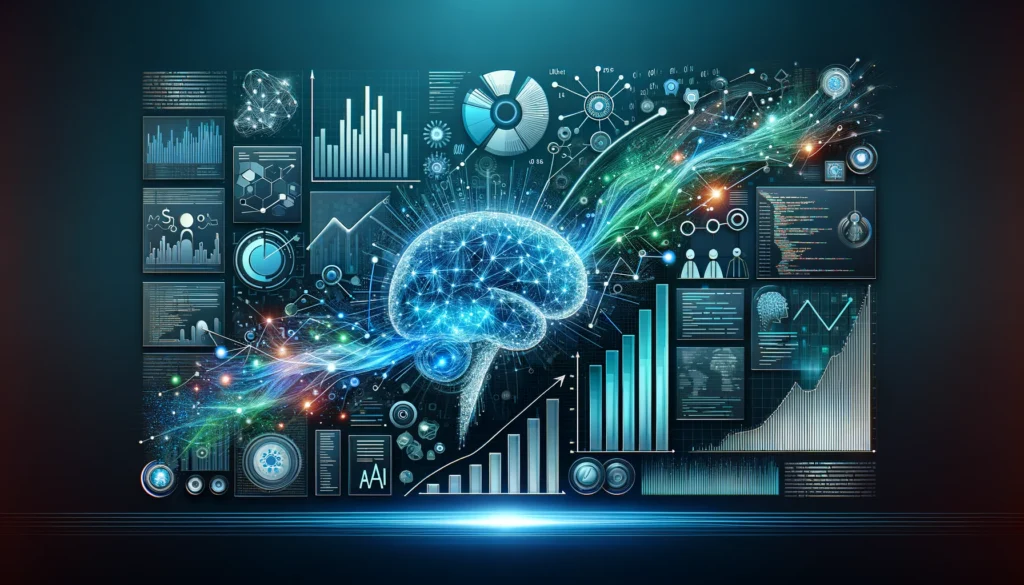Artificial Intelligence (AI) has been a transformative force across numerous industries, and in 2024, its impact on software engineering is more pronounced than ever. From automating coding processes to optimizing development pipelines and improving testing efficiency, AI is revolutionizing how software is engineered. In this blog, we’ll explore how AI is being leveraged in software engineering in 2024, the advancements shaping the future, and how developers can take advantage of these trends.
1. AI-Powered Code Generation
AI-driven tools have drastically improved code generation in recent years. Developers can now use AI-powered assistants like GitHub Copilot and OpenAI’s Codex to generate code snippets, automate boilerplate code, and even suggest solutions to complex problems. These tools are helping engineers write code faster and reduce errors.
- Context-aware coding: AI tools provide intelligent recommendations based on the code’s context, helping engineers focus on more complex logic rather than repetitive tasks.
- Bug fixing and code refactoring: AI algorithms are now capable of detecting common bugs in code and suggesting ways to refactor and optimize it for better performance.
2. Automated Software Testing
Software testing is a crucial aspect of the development process, and AI is enhancing the efficiency and accuracy of testing workflows.
- Automated Test Case Generation: AI tools can analyze the codebase and generate relevant test cases automatically. This significantly reduces the time spent on manual testing while increasing coverage.
- AI-Powered Regression Testing: AI models can intelligently identify which areas of the code are most susceptible to changes during updates, ensuring that only the necessary parts of the application are retested, speeding up the QA process.
- Predictive Maintenance: AI can predict potential bugs or failures in the code before they occur, based on patterns in historical data, thus preventing downtime and ensuring smooth releases.
3. AI in DevOps and CI/CD
In DevOps, AI is becoming an essential component for improving efficiency across the entire continuous integration and continuous delivery (CI/CD) pipeline.
- Monitoring and Incident Detection: AI-powered monitoring systems can predict and detect potential performance bottlenecks, security vulnerabilities, or system failures in real-time. These AI systems can help prevent system downtime and optimize resource utilization.
- Deployment Optimization: AI is also being used to analyze historical deployment data to recommend the best deployment times, reducing system disruptions and improving user experience.
4. AI in Software Maintenance
Maintaining software can be a challenging task, especially when dealing with legacy systems. AI is transforming the way software maintenance is handled by automating routine tasks and suggesting improvements.
- Automated Code Review: AI can review pull requests, identify potential security risks, and suggest improvements to maintain code quality across large teams.
- AI-Assisted Debugging: AI tools can analyze large amounts of log data to find patterns and correlations, enabling developers to quickly pinpoint the root cause of software bugs.
5. AI-Driven Security
AI is playing a crucial role in enhancing software security by identifying and mitigating security risks early in the development cycle.
- Threat Detection: AI systems can detect potential security vulnerabilities in the code by analyzing patterns and trends in code usage, access points, and integrations with external APIs.
- Anomaly Detection: Machine learning models are increasingly used to detect anomalies in software behavior that could indicate a security breach or attack.
6. Natural Language Processing (NLP) for Documentation and Communication
Effective communication between team members is essential in software engineering, and NLP technologies are helping streamline documentation and collaboration efforts.
- Automated Documentation: AI tools can automatically generate documentation from code comments or commit messages, ensuring that documentation is always up-to-date and accurate.
- AI-Powered Communication: AI-driven chatbots are being integrated into development environments to answer common programming questions, speeding up development cycles and reducing dependency on senior team members.
7. AI for Project Management
AI is helping improve project management within software engineering teams by optimizing resource allocation, tracking project progress, and predicting bottlenecks.
- Task Prioritization: AI tools can help project managers identify high-priority tasks by analyzing project timelines, dependencies, and available resources.
- Risk Management: AI can predict potential delays or issues based on historical project data, enabling teams to proactively manage risks and improve overall project delivery.
8. AI-Enhanced Developer Training
In 2024, AI is also being used to enhance learning and upskilling opportunities for developers.
- Personalized Learning Paths: AI-based learning platforms provide personalized course recommendations and tutorials tailored to the developer’s skill level and project needs.
- Real-Time Feedback: AI-powered code review systems can provide developers with real-time feedback and suggestions as they write code, accelerating learning and improving coding habits.
Conclusion
In 2024, AI is not just a tool but an integral part of the software engineering ecosystem. From code generation and automated testing to DevOps, security, and project management, AI is reshaping the way developers build, maintain, and optimize software systems. As AI continues to evolve, we can expect even more innovations that make software development faster, more efficient, and more reliable.
At TechsterTech.com, we harness the power of AI in our software development projects, ensuring that our clients benefit from the latest advancements in technology. Whether you’re looking to integrate AI-driven solutions or streamline your software engineering process, our team has the expertise to help you stay ahead in this rapidly changing landscape.



